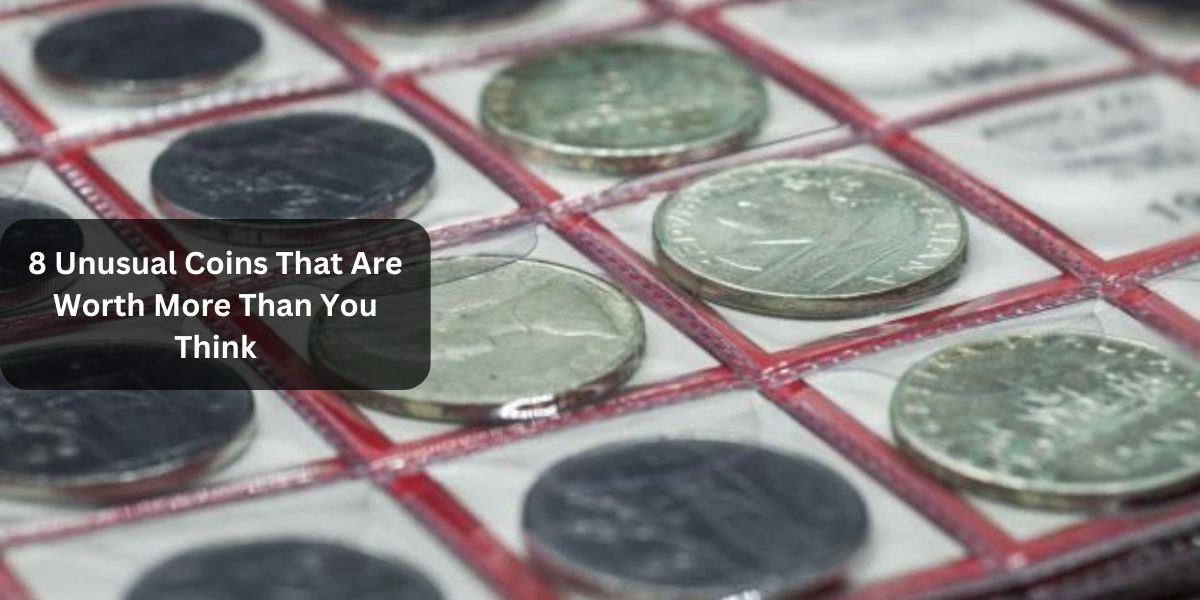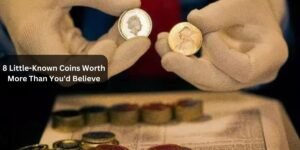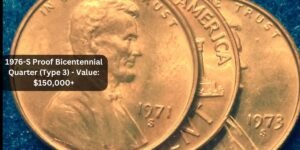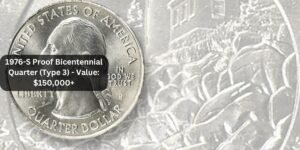Welcome, fellow coin enthusiasts, to a fascinating exploration of numismatic treasures! Prepare to be amazed as we uncover eight unusual coins that hold surprising value. From rare minting errors to unique historical artifacts, these coins are worth far more than meets the eye. Let’s dive in and discover the hidden gems of the coin collecting world!
1. Bicentennial Quarter (Missing Mint Mark)
First on our list is the Bicentennial Quarter with a missing mint mark. These elusive coins, produced during the United States’ bicentennial year in 1976, are highly sought after by collectors. Due to a minting error, some quarters were struck without a mint mark, making them exceedingly rare and valuable.
2. 1943 Copper Lincoln Cent
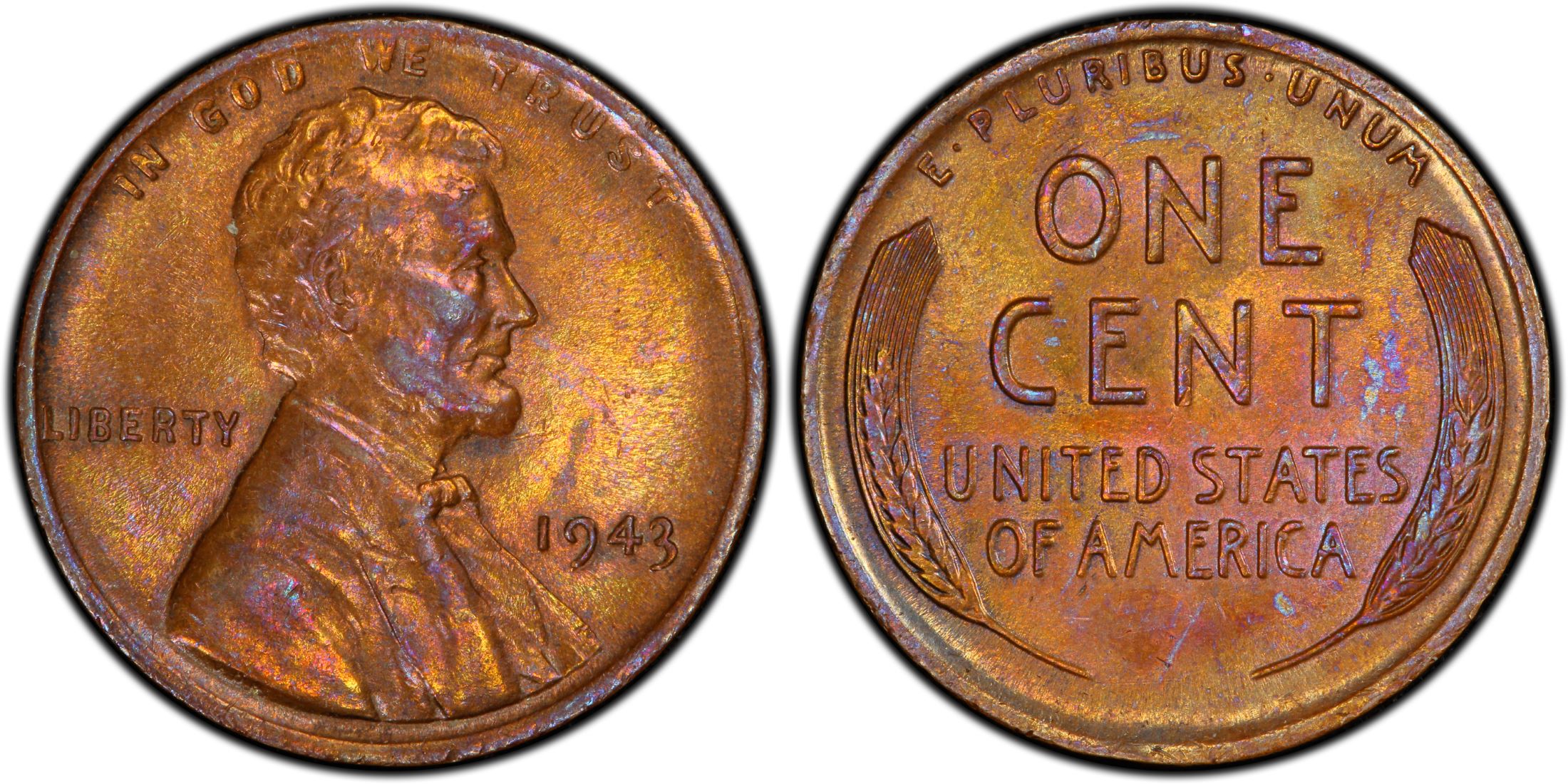
During World War II, copper was in high demand for the war effort, leading the United States Mint to produce pennies from zinc-coated steel. However, a small number of copper pennies were accidentally minted in 1943, making them incredibly rare and valuable. Keep an eye out for these copper treasures—they could be hiding in plain sight!
3. 1955 Double Die Lincoln Cent

In 1955, a rare minting error resulted in some Lincoln cents being struck with a double image, creating a distinctive doubling effect on the coin’s design. Known as the 1955 Double Die Lincoln Cent, these coins are highly coveted by collectors and can fetch significant sums at auction.
4. Presidential Dollar Missing Edge Lettering

Introduced in 2007, the Presidential Dollar series honored former U.S. presidents with their images on circulating coins. However, due to a minting error, some of these coins were struck without the edge lettering that indicates the coin’s denomination and mint mark. These error coins are rare and sought after by collectors.
5. Sacagawea Dollar With Cheerios Reverse

In 2000, General Mills partnered with the U.S. Mint to promote the new Sacagawea dollar coin by including a special “Cheerios” dollar in select cereal boxes. These coins feature a distinctive reverse design that differs from the regular issue coins and are highly collectible.
6. 1974 Aluminum Lincoln Cent

As an experimental coin, the 1974 Aluminum Lincoln Cent was struck in limited quantities for testing purposes. Although most were recalled and melted down, a few specimens managed to escape destruction and are now highly prized by collectors.
7. 2004 Wisconsin Extra Leaf Quarter
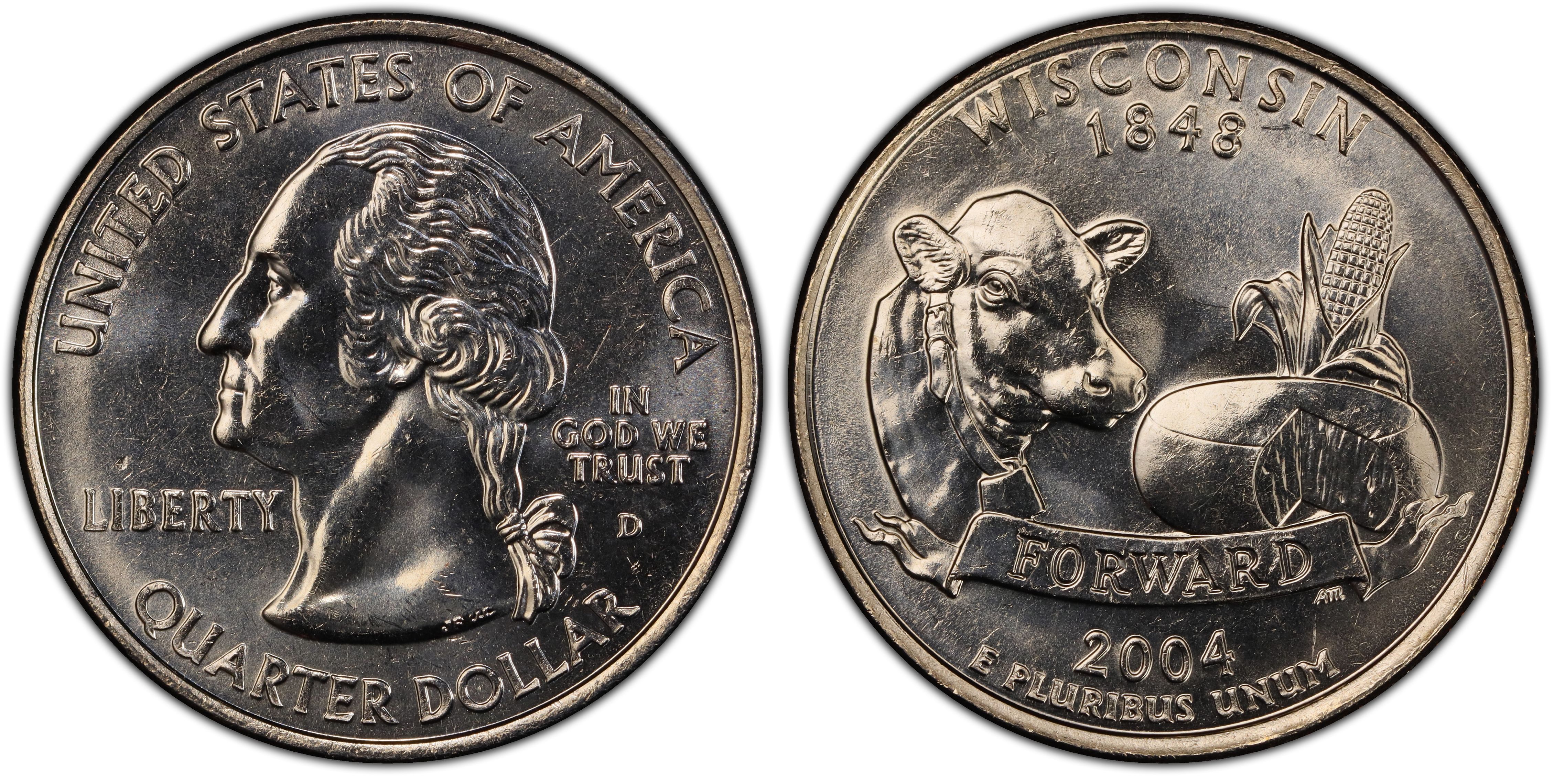
The 2004 Wisconsin Quarter features a design depicting a cow, a cheese wheel, and an ear of corn, representing the state’s agricultural heritage. However, a minting error resulted in some quarters featuring an extra leaf on the ear of corn, making them rare and valuable collector’s items.
8. 1971 No S Eisenhower Dollar

In 1971, the U.S. Mint accidentally omitted the mint mark (“S” for San Francisco) on a small number of Eisenhower dollars. These coins, known as the 1971 No S Eisenhower Dollar, are extremely rare and highly sought after by collectors.
Conclusion
From rare minting errors to unique commemorative issues, these unusual coins demonstrate the diversity and intrigue of the numismatic world. Whether you’re a seasoned collector or just starting out, keep your eyes peeled for these hidden gems—they could be lurking in your pocket change or waiting to be discovered at your local coin show!
FAQs
1. How can I determine if my coin is valuable?
Determining the value of a coin depends on factors such as rarity, condition, and demand among collectors. Consulting with professional coin appraisers, referencing numismatic price guides, and researching recent auction results can help you assess the value of your coins.
2. Are unusual coins more valuable than regular coins?
Not necessarily. While some unusual coins, such as those with minting errors or unique designs, can be highly valuable, others may have little or no additional value beyond their face value. It’s essential to research and evaluate each coin individually to determine its worth.
3. Where can I buy or sell unusual coins?
You can buy or sell unusual coins through reputable coin dealers, auction houses specializing in numismatics, online coin marketplaces, or collectors’ forums. Be sure to do your research and choose a reputable buyer or seller to ensure a fair transaction.

